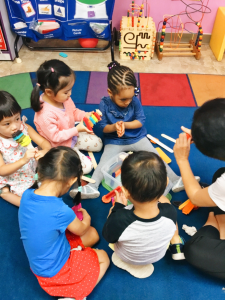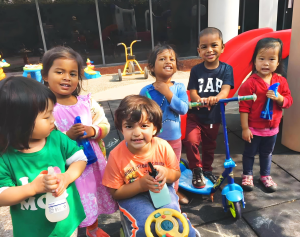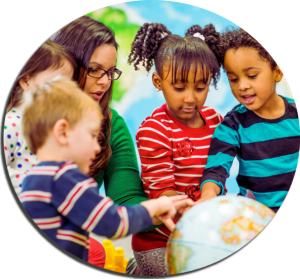The Impact Of Early Childhood Education On Long-Term Academic Success: Insights From Dublin’s Preschools
Early childhood education (ECE) has long been recognized as a crucial foundation for long-term academic success. The experiences and skills children gain in their formative years set the stage for their future educational journey. During these early years, children undergo rapid cognitive, social, and emotional development, making it an ideal period for impactful educational interventions. High-quality ECE programs not only prepare children for the academic challenges ahead but also foster a love for learning that can last a lifetime.
Recent insights from Dublin’s preschools underscore the profound impact of high-quality ECE programs on children’s development and later academic achievements. Dublin, known for its commitment to educational excellence, has implemented various innovative strategies in its preschools that emphasize holistic development. These strategies include play-based learning, individualized attention, and strong parental involvement, all of which contribute to creating a supportive and enriching learning environment.
The Importance Of Early Childhood Education
Early childhood is a period of rapid cognitive, social, and emotional development. During these formative years, the brain undergoes significant growth, making children highly receptive to learning and absorbing new information. This phase, often referred to as the “critical period,” is when the foundations for future learning and behavior are established. The experiences and interactions that children have during this time profoundly influence their development and long-term academic success.
Insights From Dublin’s Preschools
Preschools in Dublin have been at the forefront of implementing innovative ECE strategies that emphasize holistic development. Several key insights have emerged from these programs:
Play-Based Learning: A Cornerstone of Dublin Preschools
Play-based learning is a fundamental approach utilized by preschools in Dublin, and it has been shown to be highly effective in promoting cognitive and social development among young children. This educational philosophy is grounded in the belief that play is not only a natural and enjoyable activity for children but also a powerful medium for learning. Through play, children engage in a wide range of experiences that help them develop essential skills in a holistic and integrated manner.
Cognitive Development
In Dublin preschools, play-based learning is strategically designed to enhance cognitive development. When children participate in play, they are often involved in activities that require them to think critically and solve problems. For example, building with blocks, completing puzzles, and engaging in imaginative play scenarios require children to plan, organize, and execute their ideas. These activities stimulate brain development and enhance cognitive functions such as memory, attention, and executive functioning.
Language And Communication Development
Play-based learning also significantly contributes to the development of language and communication abilities. Through interactive play, children are constantly using and hearing language, which helps them expand their vocabulary and improve their conversational skills. Role-playing games, where children take on different characters and scenarios, are particularly effective in this regard. These activities encourage children to use new words, form sentences, and express their thoughts and feelings verbally.
Social Development
Building social connections and developing interpersonal skills are key outcomes of play-based learning in Dublin preschools. Through cooperative play, children learn how to interact with others, share, take turns, and resolve conflicts. These social interactions are critical for developing empathy, understanding different perspectives, and forming positive relationships with peers.
Emotional Development
Play-based learning also plays a significant role in emotional development. Through play, children explore their emotions, develop self-regulation skills, and build resilience. Engaging in imaginative play allows children to express their feelings and work through complex emotions in a safe and controlled environment.
Physical Development
Physical play activities are another critical aspect of play-based learning. They help children develop fine and gross motor skills, which are essential for their overall physical health and coordination. Activities such as climbing, running, and jumping improve muscle strength and coordination, while fine motor activities like drawing, cutting with scissors, and manipulating small objects enhance hand-eye coordination and dexterity.
Enhancing Creativity And Imagination
Play-based learning encourages creativity and imagination, which are vital for intellectual and emotional growth. When children engage in creative play, they explore new ideas, experiment with different roles, and create imaginative worlds. This kind of play helps children develop flexible thinking and problem-solving abilities.
Recent insights from Dublin’s preschools underscore the profound impact of high-quality ECE programs on children’s development and later academic achievements. Dublin, known for its commitment to educational excellence, has implemented various innovative strategies in its preschools that emphasize holistic development. These strategies include play-based learning, individualized attention, and strong parental involvement, all of which contribute to creating a supportive and enriching learning environment.
The Importance Of Early Childhood Education
Early childhood is a period of rapid cognitive, social, and emotional development. During these formative years, the brain undergoes significant growth, making children highly receptive to learning and absorbing new information. This phase, often referred to as the “critical period,” is when the foundations for future learning and behavior are established. The experiences and interactions that children have during this time profoundly influence their development and long-term academic success.
Insights From Dublin’s Preschools
Preschools in Dublin have been at the forefront of implementing innovative ECE strategies that emphasize holistic development. Several key insights have emerged from these programs:
Play-Based Learning: A Cornerstone of Dublin Preschools
Play-based learning is a fundamental approach utilized by preschools in Dublin, and it has been shown to be highly effective in promoting cognitive and social development among young children. This educational philosophy is grounded in the belief that play is not only a natural and enjoyable activity for children but also a powerful medium for learning. Through play, children engage in a wide range of experiences that help them develop essential skills in a holistic and integrated manner.
Cognitive Development
In Dublin preschools, play-based learning is strategically designed to enhance cognitive development. When children participate in play, they are often involved in activities that require them to think critically and solve problems. For example, building with blocks, completing puzzles, and engaging in imaginative play scenarios require children to plan, organize, and execute their ideas. These activities stimulate brain development and enhance cognitive functions such as memory, attention, and executive functioning.
Language And Communication Development
Play-based learning also significantly contributes to the development of language and communication abilities. Through interactive play, children are constantly using and hearing language, which helps them expand their vocabulary and improve their conversational skills. Role-playing games, where children take on different characters and scenarios, are particularly effective in this regard. These activities encourage children to use new words, form sentences, and express their thoughts and feelings verbally.
Social Development
Building social connections and developing interpersonal skills are key outcomes of play-based learning in Dublin preschools. Through cooperative play, children learn how to interact with others, share, take turns, and resolve conflicts. These social interactions are critical for developing empathy, understanding different perspectives, and forming positive relationships with peers.
Emotional Development
Play-based learning also plays a significant role in emotional development. Through play, children explore their emotions, develop self-regulation skills, and build resilience. Engaging in imaginative play allows children to express their feelings and work through complex emotions in a safe and controlled environment.
Physical Development
Physical play activities are another critical aspect of play-based learning. They help children develop fine and gross motor skills, which are essential for their overall physical health and coordination. Activities such as climbing, running, and jumping improve muscle strength and coordination, while fine motor activities like drawing, cutting with scissors, and manipulating small objects enhance hand-eye coordination and dexterity.
Enhancing Creativity And Imagination
Play-based learning encourages creativity and imagination, which are vital for intellectual and emotional growth. When children engage in creative play, they explore new ideas, experiment with different roles, and create imaginative worlds. This kind of play helps children develop flexible thinking and problem-solving abilities.






Comments
Post a Comment